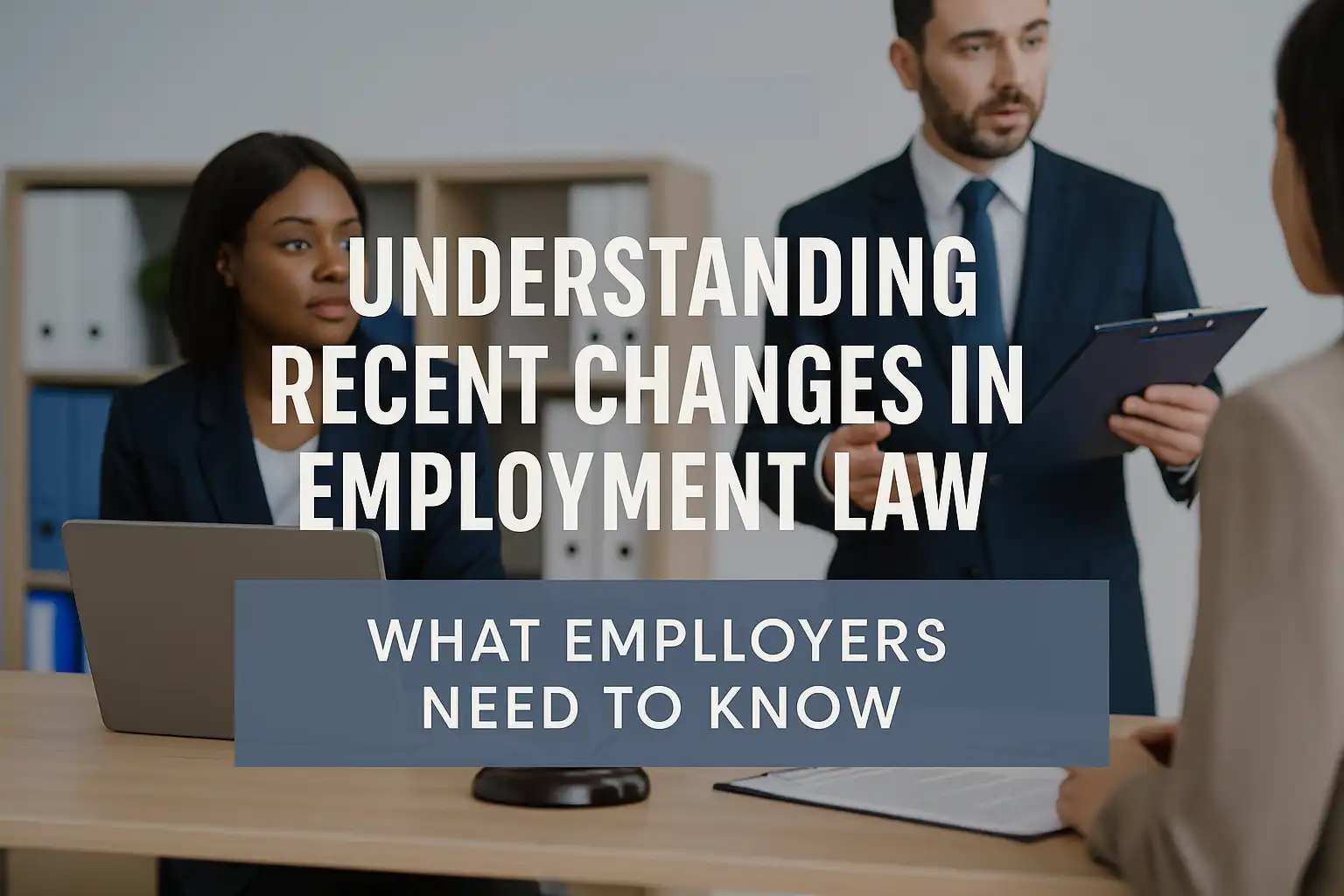Understanding Recent Changes in Employment Law: What Employers Need to Know
Introduction
The legal landscape of employment law is constantly evolving, and 2025 has brought significant changes impacting both employers and employees. From updates in wage regulations to new workplace compliance standards, understanding these changes is crucial for businesses to remain compliant and avoid costly penalties. This guide breaks down the most important updates in employment law and provides actionable steps for employers to adapt effectively.
Why Staying Updated on Employment Law Matters
Employment law governs critical aspects of the workplace, including wages, discrimination, benefits, and safety standards. Failing to comply with new regulations can lead to lawsuits, fines, and reputational harm. For employers, proactive compliance ensures a safe and equitable workplace, boosting morale and reducing legal risks. Learn more from the U.S. Department of Labor.
Key Changes in Employment Law for 2025
1. Minimum Wage Increases
Several states have implemented new minimum wage standards. Businesses operating across state lines should review local wage laws and update payroll systems accordingly.
2. Expanded Overtime Rules
Recent legislation has adjusted the salary threshold for overtime eligibility. Employers must ensure proper classification of exempt and non-exempt employees to avoid violations. For details, visit WHD Overtime Rules.
3. Paid Family and Medical Leave Updates
More states are adopting mandatory paid leave policies, requiring employers to revise internal leave policies. Understanding state-specific obligations is essential for compliance.
Workplace Harassment and Discrimination Policies
Anti-discrimination laws have expanded to include additional protected categories. Employers should update their employee handbooks and conduct regular training sessions to reinforce compliance and foster an inclusive workplace. Resources are available at EEOC.
Tips for Employers to Stay Compliant
- Conduct an internal audit of HR policies and procedures.
- Train managers and staff on new employment regulations.
- Implement time-tracking software for accurate wage and hour compliance.
- Consult legal counsel for state-specific guidance.
Conclusion
Adapting to recent employment law changes requires proactive effort but protects businesses from legal challenges and strengthens employee trust. Stay informed, update policies regularly, and prioritize compliance as a core part of your business strategy.
Read next: Navigating Remote Work Policies – Legal Best Practices for Employers
